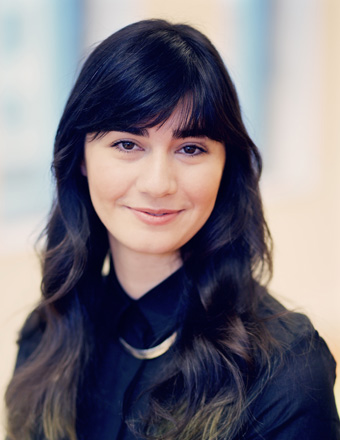Zoë Robaey nominated as Science Talent 2019
Every year, the Dutch version of the popular science magazine New Scientist holds an election to determine who the science talent of the year is. This year, bio-ethicist Dr. Zoë Robaey is one of the nominees. She is a postdoc at the Biotechnology and Society group of the department of Biotechnology and conducts research at the interface of ethics and biotechnology.
Technology often provides a solution to our problems, but at the same time it also creates new uncertainties. What are the environmental and social consequences of new biotechnology, such as gene drive to combat malaria? Or GMO seeds in agriculture? Or the production of biofuels? Questions like this often lead to polarised positions: you are either for or against.
Good approach
Zoe Robaey wants to eliminate this polarization. She investigates ways to determine what a good approach is when it comes to the introduction of new technology, together with all parties involved. Robaey works for the research group Biotechnology and Society, which aims to understand the social and sustainability aspects of biotechnological solutions and aims to translate these into responsible, sustainable innovations. Communication and ethics play a crucial role in this.
For Zoe, this often means that she needs to talk to people. In November of last year, for instance, she spent a month among maize farmers in Iowa (USA), talking to them about how they work. With the waste they produce, the leaves and the core of the corn cobs, you could make biofuel. The problem is that the discussion about biofuels is hugely polarized. "I'm trying to bring nuance to the discussion," says Robaey.
More understanding
How does she do that? "Through interviews, observations and workshops, I learn to understand what people value and what practices are associated with these values," continues Robaey. "This helps me understand how different people see their responsibility for sustainability. Doing this with many different people creates more understanding about what is important and how we can shape a technology to better fit the goals of society. In the case of the maize farmers, for example, there were challenges related to the harvest. These challenges could be addressed by different machinery and better financial support for the farmers."
Zoë Robaey not only conducts research, but also participates in the public debate. She was a panel member in one of the episodes of the programme series ‘De Hongerige Stad’ in Pakhuis de Zwijger, which tried to give people a new perspective on the role of biotechnology in food production, and she spoke about biotechnology and responsibility at the Brainwash Festival.
Do you want to vote for Zoë Robaey? You can do so until Monday 6 May on the website of New Scientist.

